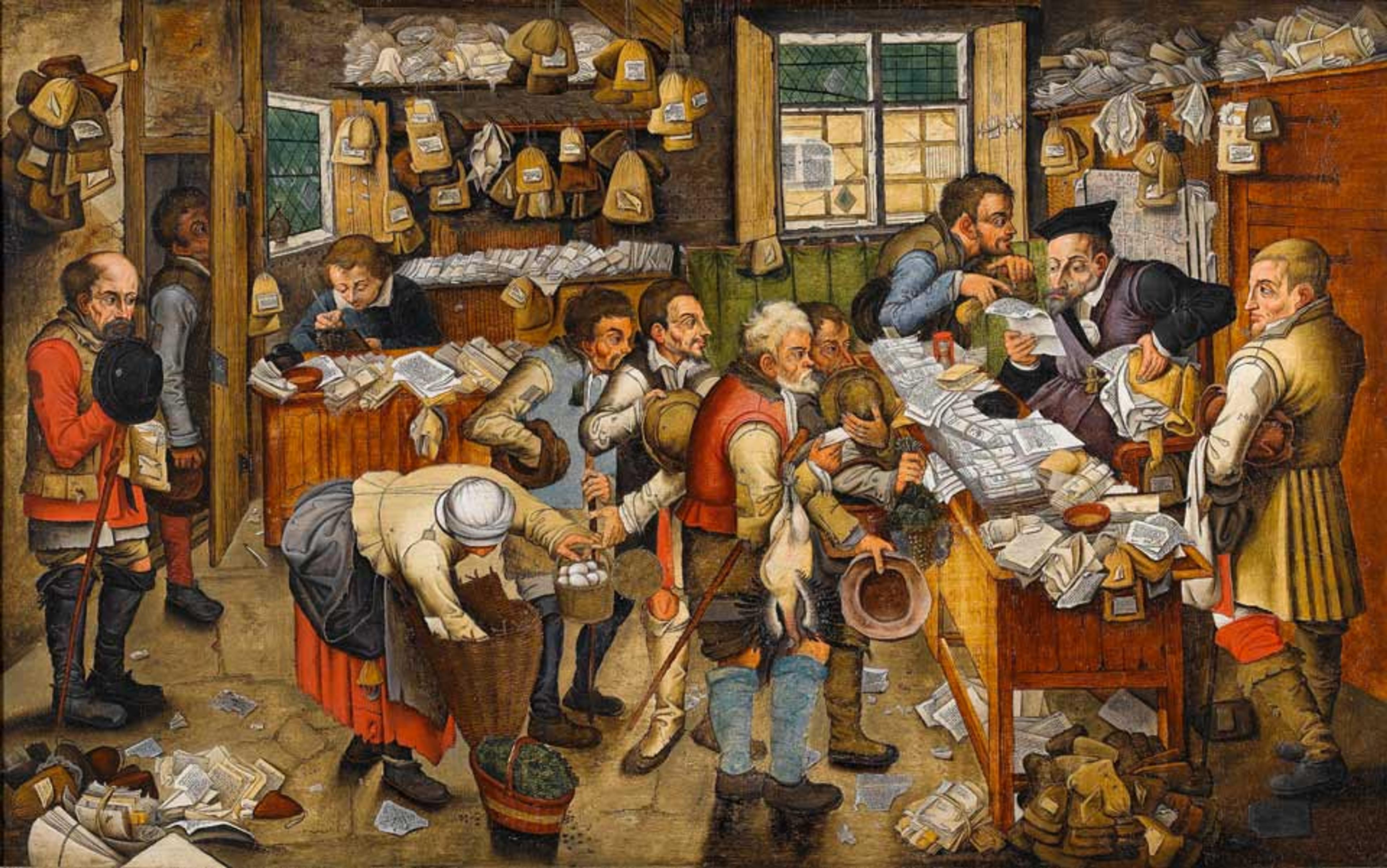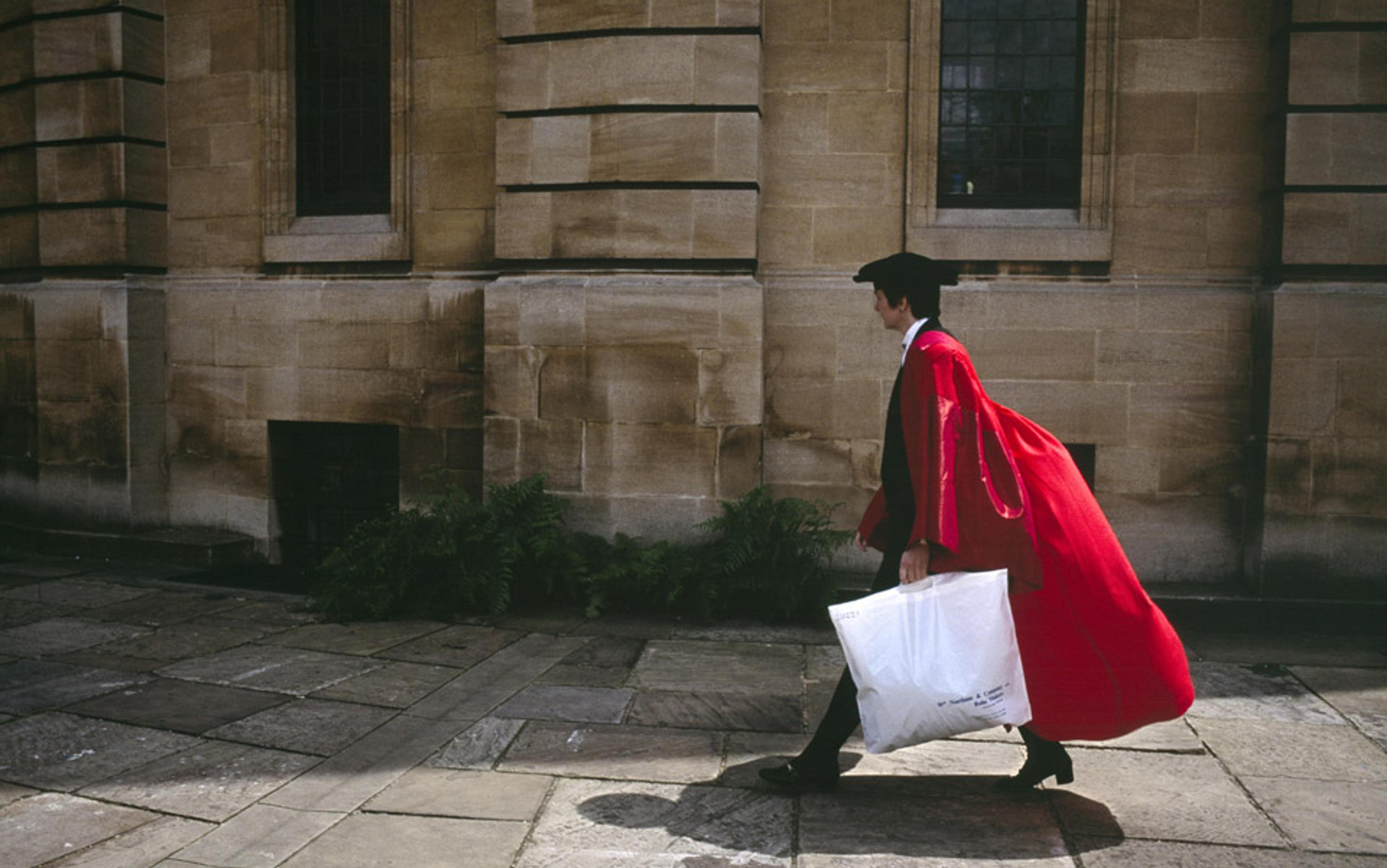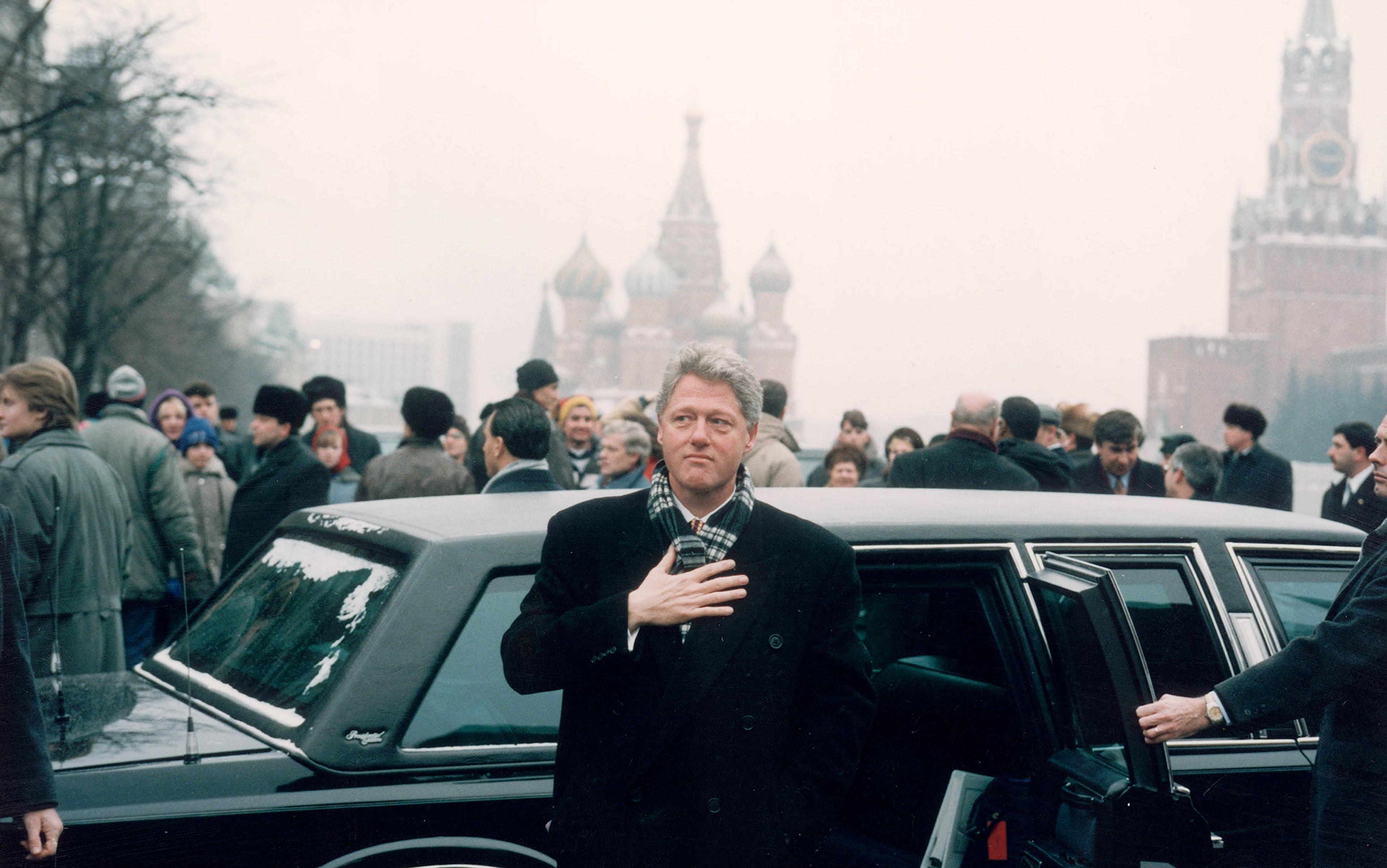Place your hand on your heart, and repeat after me: ‘I recognise that I can use part of my income to do a significant amount of good in the developing world. Since I can live well enough on a smaller income, I pledge that from today until the day I retire, I shall give at least 10 per cent of what I earn to whichever organisations can most effectively use it to fight poverty in the developing world. I make this pledge freely, openly, and without regret.’
How did that feel? Did your heart skip a beat when you got to the ‘10 per cent’ bit? If not, then you could become a member of Giving What We Can, a global organisation set up by the University of Oxford research fellow Toby Ord with the aim of alleviating poverty in the developing world. While members of Ord’s fellowship pledge to give away at least a tenth of their income, Ord himself, a philosopher who works on practical ethics and consequentialism, is giving away about half of his salary — more than £10,000 a year. Membership of Giving What We Can spans 17 countries. Not that the 250 members – many of whom are students – are likely to eradicate world poverty on their own, but it’s a start.
When Ord first made his stand earlier this year, he was briefly besieged by journalists, all of whom wanted to know why he had decided to give away such a large proportion of his income to charity. Ord’s answer, in a nutshell, was that it was the right thing to do, and that each of us should do the same; the only caveat being that we should spend our money carefully, choosing those charities that save the most lives for the least money.
Giving away a tenth of one’s income no doubt sounded very Old Testament to anyone who knows anything about the Bible — a tithe, in other words. Although, it should be said, not in the ancient Egyptian sense of the word, where, in the days before official taxation, the pharaoh would tour his kingdom collecting tithes from his people. Nor, indeed, in the old meaning of the word in America, where Christian pastors began to focus on the importance of tithing only after the First Amendment in 1791 made specific the split between church and state, effectively cutting the church off from the tax money it enjoyed in early colonial times.
Today, Americans — just four per cent of whom say they tithe — donate $298.5 billion dollars each year to charity, of which $95.8 billion or a third goes to religious organisations. And yet, in an era that’s seen tented encampments mushroom on Wall Street and on the steps of St Paul’s, maybe the time is ripe for a return to the tithe. Might this ancient ritual pledge, given lip service at best even by many Christians, make a comeback and, in the process, change our world?
Inside all of us — however rich or poor — is a small child holding out a homemade card and saying, ‘Mum, I’ve made this for you.’
Ord’s stand was inspired by Princeton philosopher Peter Singer and his 1972 essay ‘Famine, Affluence and Morality’. In brief, Singer argued that if one could afford to give money to reduce others’ suffering it was immoral not to do so; and that, moreover, just because the person in need might be thousands of miles away does not make it any less justifiable to do nothing to help.
Singer is now a signed-up member of Giving What We Can. Membership of Singer’s own organisation — The Life You Can Save — also involves a personal pledge to give a recommended percentage of annual income to charity, although it does not call this a ‘tithe’. The results have been spectacular: since February 2009, close to $81 million has been pledged. Clearly, if in 1972 his was a voice in the wilderness, by 2012 his call to action has captured the imagination of a great many people.
The practice of tithing — ‘to take the tenth of’— has been around for millennia. Traditionally, Jews have always pledged a tenth of their income, the earliest biblical reference being to Abraham, who gave a tenth of all he had to King Melchizedek after returning victorious from a battle at which he had not only managed to retrieve his nephew Lot but all his lost possessions. In this guise, giving is an act of thanks.
In Numbers 18:21, tithing is included in Mosaic law, under the more utilitarian pretext that it would provide for the Levites, who God wanted to concentrate on priestly duties. Much of contemporary religious tithing in Britain, whereby the devout simply pledge their 10 per cent directly to the church, does the same, going straight into church coffers, paying for vicars, staff, and whatever outreach projects a particular church might be engaged with.
Interestingly, the New Testament is a lot quieter — indeed, a whole lot less religious — on the practice of tithing. The first Christians — not unlike Ord himself, who, however, professes no religion — were social radicals, described in Acts as sharing everything they had, and selling their property and possessions ‘to give to anyone who had need’. A few books later, St Paul, writing to the early church in Corinth, is in flexible mood, leaving it up to individuals to give ‘according to what one has’, and telling them that ‘God loves a cheerful giver.’
Which might be why — credit crunch and double-dip recession notwithstanding — today’s Anglican churchgoers give on average a good deal less than 10 per cent to their Church. Dr John Preston, national stewardship and resources officer for the Church of England, says that, in 2010, the last year for which figures are available, £305 million was given by 605,000 regular givers, who gave on average 3.4 per cent of their income, some way short of the 5 per cent advised by the General Synod. What would Melchizedek say?
Money and the church have had a long and rocky relationship and, for each Christian radical such as Ron Sider — whose 1977 bestseller Rich Christians in an Age of Hunger advocated a graduated tithe according to income — there are others, not least the proponents of the ‘Prosperity Gospel’, who claim that personal wealth is one of the things the Almighty desires for his flock. ‘Prosperity’, which rose to prominence with 1980s televangelism, and swiftly disappeared from view after the Jim Bakker and Jimmy Swaggart sex scandals, is once again popular in America.
Megachurches run by the likes of the American televangelist Joel Osteen place finance centre stage, promising that if believers can establish through word and deed that they are ‘in Jesus Christ’, then God will respond with gifts of health and wealth. And tithing is central, with Malachi 3:10 cited frequently as a favourite inspirational verse:
‘Bring the whole tithe into the storehouse, that there may be food in my house. Test me in this,’ says the Lord Almighty, ‘and see if I will not throw open the floodgates of heaven and pour out so much blessing that you will not have room enough for it.’
In other words — to paraphrase the Lord — give to me and I’ll give you back tenfold. Which sounds compelling, though exactly what these churches use their congregations’ tithes for is another matter. Some, admittedly, will go on outreach programmes to the poor, but a great deal will be spent on church staff, buildings, PA systems and the like. And what would Peter Singer — let alone Melchizedek — say to that?
Reading this, it sounds almost as if one needs to be persuaded to give; as if without the karmic promise that we will receive far more than we might give, we’d never get out our wallets in the first place. And yet — despite the message of consumerism that it is more blessed to get than to give — isn’t the wish to give part of our makeup from our very earliest days? Look at a mother feeding her newborn, for instance. It might seem as if the mother is giving the baby her breast; but the baby is also giving his mouth. Just as, later in life, he will give his lover his body as she gives hers to him. Anthropologists argue the same: that the ‘gift’ gives rise to reciprocal exchange, without which our societies would crumble.
I can see from my work as a psychotherapist, as well as from my own life, that being deprived of the opportunity to give can create as much difficulty as being prevented from getting what one needs. Let’s say I come into some money and decide to take an impoverished friend on holiday. When we get there, I feel so generous that I refuse to take anything from my friend. It’s not hard to imagine that, before too long, my friend will begin to feel deprived; with each expensive dinner, he will feel increasingly frustrated and, most likely, enraged. Giving, in other words, is a powerful weapon, which needs to be handled with care.
In this light, looking back at last summer’s riots, I’d say that what happened was not just an explosion of violence driven by feelings of deprivation, but also an eruption of fury among some young people who feel that ‘society’ does not want anything that they might actually have wanted to give.
On a different demographic level, I think we’re seeing a similar thing among wealthy philanthropists. Back in May, the Government dropped plans to cap the amount of tax that donors could claim back on their charitable donations, after loud protest from the charity sector. As the Charities Aid Foundation pointed out, half of the £11 billion given to charity last year came from just seven per cent of donors. All well and good, you might say: but why should the Government give back tax to the moneyed classes when it could use this money for people in real need?
The rich, I’d hazard, don’t see it like this. Talk of caps made some feel personally offended. Quoted on BBC Radio 4, the technology entrepreneur Dame Stephanie Shirley (a former philanthropy tsar under Gordon Brown) said it was ‘extraordinary to cast such a bad light not only on the respectable charities but also on philanthropists. The vast majority are dedicated, well-intentioned and effective citizens, and we want to be respected as such.’ Or, as she said elsewhere: ‘I try to make [giving money] a committed act of love.’ In other words, Dame Shirley, like the rest of us, needs to give in order to feel human.
Inside all of us — however rich or poor — is a small child holding out a homemade card and saying, ‘Mum, I’ve made this for you.’ We need to feel that our offerings are wanted. As we grow older, anxiety tends to creep in and we start to tell ourselves that, actually, what we need is to get, and to save, and to keep; that no one will look after us in our old age and so we’d better put whatever excess we have into our pensions.
What if, however, we were to put a little less into our pensions and give away a little more? Try filling in the ‘How Rich You Are’ form on Ord’s website and you’re likely to discover that however low you believe your income to be, in global terms you in the world’s highest income percentile. In this light, religious or not, tithing suddenly doesn’t seem such a leap of faith after all.






